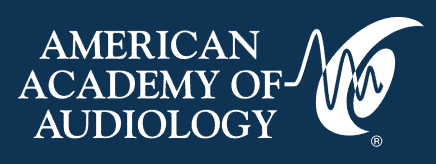Founded in 1999, the American Board of Audiology® (ABA) creates, administers, and promotes rigorous credentialing programs that elevate professional practice and advance patient care. ABA credentials are earned by leading audiologists, respected by other healthcare providers, and trusted by patients.
ABA Mission Statement
The ABA creates, administers, and promotes rigorous credentialing programs that elevate professional practice and advance patient care.
ABA Vision
ABA credentials are earned by all leading audiologists, respected by other healthcare providers, and trusted by patients.
Code of Ethics
The ABA requires certified practitioners to adhere to the ABA Codes of Ethics to ensure they are providing the highest levels of professional service, competence, confidentiality, and products to their patients. We require our certificants to agree and sign a pledge to follow the ABA Codes of Ethics when they apply for certification and when they recertify their credentials.
ABA Timeline
- 1998: ABA created
- 1999: ABA incorporated
- 1999: First Board Certified in Audiology® credential granted
- 2004: First audiologists awarded Cochlear Implant Specialty Certification® credential
- 2005: ABA awards Board Certified in Audiology credential to the 1000th audiologist
- 2008: ABA becomes the first organization to require a doctoral degree for Board Certified in Audiology and Cochlear Implant Specialty Certification credentials
- 2008: Tier I requirement is introduced, expanding board certified audiologists’ commitment to lifelong learning and creating the only in-depth continuing education construct in audiology
- 2009: ABA awards Board Certified in Audiology credential to the 2000th audiologist
- 2010: Student Academy of Audiology Board of Directors appoints a student liaison to the ABA
- 2011: First audiologists are awarded Pediatric Audiology Specialty Certification® credential
- 2013: The Practice Analysis in Audiology Study commences, an analysis of the professional space of audiology, validating the Audiology Profession through a study that reflects the practice of audiologists who have three (3) years of post-graduate experience
- 2014: ABA streamlines eligibility requirements for Board Certified in Audiology credential; candidates no longer required to provide results from Praxis exam in audiology
- 2014: ABA announces the first Preceptor Training Program to validate audiologists who supervise students in clinical settings
- 2016: ABA launches the Certificate Holder – Audiology Preceptor® (CH-AP) certificate program (CH-AP)
- 2017: ABA launches the Certificate Holder – Tinnitus Management® (CH-TM) certificate program (CH-TM)
- 2018: ABA awards Board Certified in Audiology credential to the 3000th audiologist
- 2019: ABA changes the name of its signature credential from Board Certified in Audiology to American Board of Audiology Certified (ABAC) and reduces the effective certification period from three years to one year.
